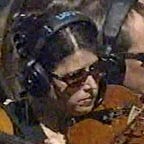(W)holeness
Blogpost #3
by Sheena Anthony, Tyler Schell, Lisa Caldwell, LaFaye Tapper, Mariya Popruzhnyy, Rebekah Deitrich
One theme gleaned from our reading and group discussion centers on how one determines value, especially in the context of disability. Unfortunately, theological teachings, Biblical interpretations, and structures of the contemporary Christian church have all been used to propagate oppressive and damaging harm against those with disabilities. Marginalization, experienced in the context of a system that is Divinely intended and claims to be inclusive, loving, and uplifting of all its members, is nothing short of traumatic.
Amos Yong addresses this harm through his disability hermeneutic by rereading Biblical passages of healing while exposing traditional normative interpretations and the damage they have caused. For example, teachings about Jesus’ healing of the man who was born blind in John 9 have traditionally focused heavily on his healing, which leaves a pervasive and implicit belief that “blindness” is the problem which needs curing in order for the man to have value and a place in God’s kingdom. [1] These interpretations imply the Glory of God is only revealed through the cure of blindness, not in the man’s disability. [2] Yong challenges this problematic view by turning the focus on the heart of the passage, which he argues is not about Jesus opening “the eyes of one born blind” but illuminating “the ‘sightedness’ of this man in contrast to the “blindness” of the Pharisees.” [3] In Yong’s view, healing takes a back seat to the healer; the man’s ability to “see” Jesus is central, not his cure. Ironically, normative interpretations of this passage about sight have kept many in the church blind to its true testimony and witness, and as a result, keeps those with disabilities oppressed and unseen.
These questions — “How do we actually see the other?” and “What gives value to the other?” — are easily missed if we are moving at a pace that does not allow for true connection. John Swinton develops a theology that invites each of us to have a place at the table regardless of ability. He writes, “In a world where some desire to kill people with disabilities, or prevent them from coming into existence, gentle, hospitable, vocational discipleship that is open to the possibility that each of us is the unexpected guest at the banquet of life offers both a counter to oppressive cultural norms and a beautiful, neatly fitting key that opens a door into a whole new world of time, grace, and being.” [4] A shift in perspective is required to reimagine a different way of being. Learning to embrace slowness is key to discovering aspects of ourselves that usually get ignored. From a psychological perspective, it can be difficult for those of us who from a young age have learned that our value is dependent on our utilitarian contribution to slow down. This message only gets reinforced by society at large. [5] This way of moving in the world basing value on what we can contribute, leaves us neglecting parts of ourselves that need tending to. In order to rewrite this narrative and the resulting way of living, we are forced to reconsider what makes a person valuable. No human being is “useless” and we believe that simply being human gives inherent value to each person, made in the image of God, on a diverse spectrum of ability. When we come together in communities in the church or otherwise, this is not only an act of celebrating the image of God in the other but the social connectedness is a source of resilience that helps us endure difficult seasons and even survive disease. [6] Being versus doing requires slowing down and listening to our bodies. If our perception of time never changes then we will never be able to live our lives fully and will remain trapped trying to earn value through perpetual work.
Regardless of our capabilities or abilities, we are all disciples of Jesus and our value is located in this identity. Our value, established in this identity, does not change based on whether our work is considered productive. Instead, value comes from “cheerfully being with the capacity for wonder of the simple things” in life. [7]
Endnotes:
[1] Amos Yong, The Bible, Disability, and the Church: A New Vision of the People of God (Grand Rapids, MI: William Eerdmans Publishing, 2011), 53.
[2] Ibid., 53.
[3] Ibid., 57.
[4] John Swinton, Becoming Friends With Time: Disability, Timefullness and Gentle Discipleship (Waco, TX: Baylor University Press, 2016), 129.
[5] Gabor Mate, When the Body Says No: Understanding the Stress Disease Connection (Hoboken, NJ: John Wiley & Sons, 2003), 224.
[6] Ibid., 61.
[7] Swinton, Becoming Friends of Time, 122.
Bibliography
Mate, Gabor. When the Body Says No: Exploring the stress-disease connection. Tennessee: John Whiley & Sons, 2003.
Swinton, John. Becoming Friends With Time: Disability, Timelessness and Gentle Discipleship. Waco, TX: Baylor University Press, 2016.
Yong, Amos. The Bible, Disability, and The Church: A New Vision of the People of God. Grand Rapids, MI: William B. Eerdmans Publishing, 2011.
